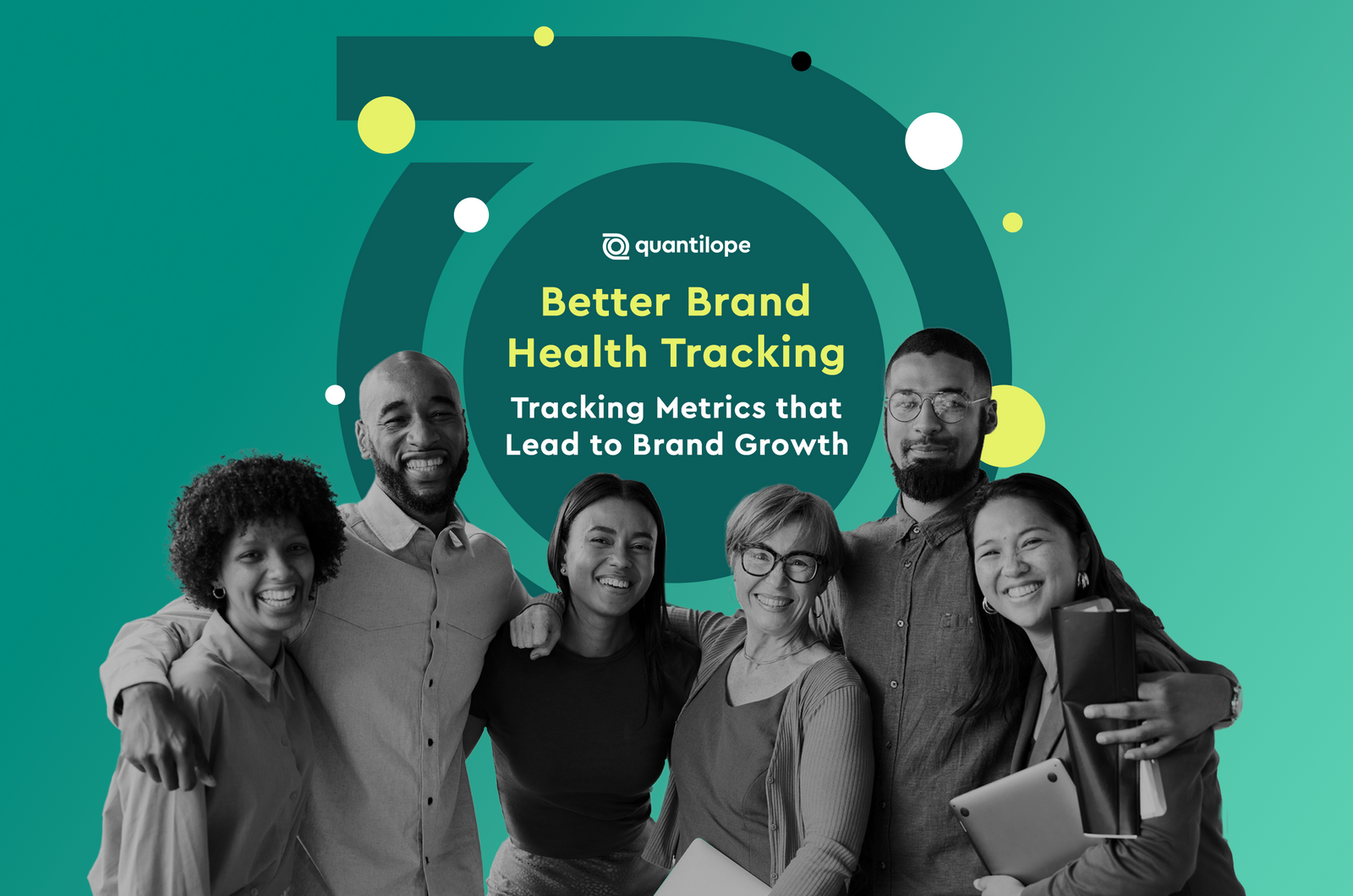Better Brand Health Tracking: Tracking Metrics that Lead to Brand Growth
Most insights teams will know that brand health trackers can be rigid, non-actionable, and inefficient. But brands now have the opportunity to gather brand health tracking insights in a new way to move quicker, smarter, and more strategically.

Most insights teams will know that brand health trackers can be rigid, non-actionable, and inefficient. But brands now have the opportunity to gather brand health tracking insights in a new way to move quicker, smarter, and more strategically.
Read on to learn more about exciting new brand health tracking metrics and analyses, developed by Professor Jenni Romaniuk (author of Better Brand Health and co-author of How Brands Grow 2) of the Ehrenberg-Bass Institute, that are proven to lead to brand growth, by putting the needs of your category buyers first (instead of your Marketing team’s needs). Find out how these new concepts directly correlate with brand growth, and how you can incorporate these metrics into a modern brand health tracker for your brand that will actually support your Marketing team in reaching their goals.
What is brand health tracking and why is it important?
Over time, category buyers gravitate toward brands that are relevant to their needs and provide them with positive experiences. Brand health tracking is the continuous measurement of important buyer metrics, and brand owners use brand health trackers to identify and monitor emerging trends, current brand and competitive performance, and changing category buyer perceptions. However, many brand trackers are difficult to maintain and analyze and often focus on metrics that don’t provide actionable insights.
New brand health tracking framework
To solve many of the issues of traditional brand tracking, a new framework for brand health tracking has been introduced by Professor Jenni Romaniuk of the Ehrenberg-Bass Institute of Marketing Science, in her book, Better Brand Health. This new framework covers innovative concepts such as Category Entry Points and Mental Availability, analysis methods like Mental Advantages, and metrics such as Mental Market Share that have been proven to directly correlate with sales market share, supporting marketers in setting their brand up for growth.
How does this new framework support brand growth?
If you’re new to Jenni’s framework, let me explain some core elements in more detail:
Category Entry Points (CEPs) - these are the ‘cues’ that prompt consumers to think about buying or using a certain category product (like the need to buy a refreshing soda when feeling thirsty, or to buy luggage when thinking about packing for a trip). These cues are based on basic human needs, motivations, occasions or reason - and would still exist in a world without any brands (like being thirsty would exist in a world without Coca-Cola, and going on a trip would happen in a Samsonite-free world). Learning and understanding these ‘buying prompts’ that are based on human needs allows brands to market, brand, and communicate their products more effectively.
Mental Availability - this describes brands that come to mind in those specific buying scenarios (CEPs). If your brand is strongly connected to a specific need (like feeling thirsty or going on a trip) in category buyers’ minds, then your brand is mentally available in a specific buying situation. The more situations, needs or occasions your brand comes to mind in, the more Mental Availability it will have, leading to category buyers picking up your product over. a competitor’s. The core metric for Mental Availability is Mental Market Share that captures your brand’s share of associations across all relevant brands and entry points for a category. It allows you to understand how present your brand and your competitors are in category buyers’ mind in relation to the most common category needs (CEPs) and which needs to focus on to increase your mental presence. Mental Market Share is also highly correlated with sales market share, so by increasing Mental Market Share your brand will likely increase its bottom line, as well.
Mental Advantage - highlights how strongly brands are associated with different CEPs or brand attributes, relative to their size and the CEPs’ (or attributes’) commonality. In addition to learning where your brand should focus, Mental Advantage Analysis also
uncovers which advantages or disadvantages your competitors have for various CEPs. This exciting new analysis provides clear and actionable takeaways on which attributes a brand should defend, grow, and maintain - and which white spaces you could move into to increase your brand’s Mental Availability.
How to set up a better brand health tracker
To learn more about this new framework, download our Guide to Better Brand Health Tracking, which also includes examples of the metrics and analyses in action, through the lens of a syndicated study on the soda category.
Find out how you can set up and run your own Better Brand Health Tracking studies that tell you what’s bringing consumers to shop in your category, and how they are thinking about your brand, to enable better decisions for brand growth.
Author
Madita Brandhorst, Senior Tracking Lead, quantilope
Madita combines her background in psychology (M.Sc.) with 10 years of market research expertise to generate deep and strategic insights. She started her career at Ipsos, running traditional brand and ad tracking studies for global brands across various industries incl. CPG, Fashion, Media and Tech. At quantilope, Madita spearheads the development, implementation and continuous improvement of innovative tracking solutions, fueled by her belief that tracking can be both: fun and actionable.
Her mission is to transform the way we do tracking by leveraging automation, the latest scientific thinking, and a dynamic mix of human and artificial intelligence.
Madita Brandhorst
Senior Solutions Consultant at quantilopeMadita is a Senior Solutions Consultant at quantilope based out of Hamburg. Combining in-depth technical platform knowledge and 8 years of classic market research experience, she supports organisations across the globe by transforming their insights processes through the power of automation. Holding a Master’s degree in psychology she loves to study human behaviour and leverages her storytelling skills to translate data into insights and insights into actions


